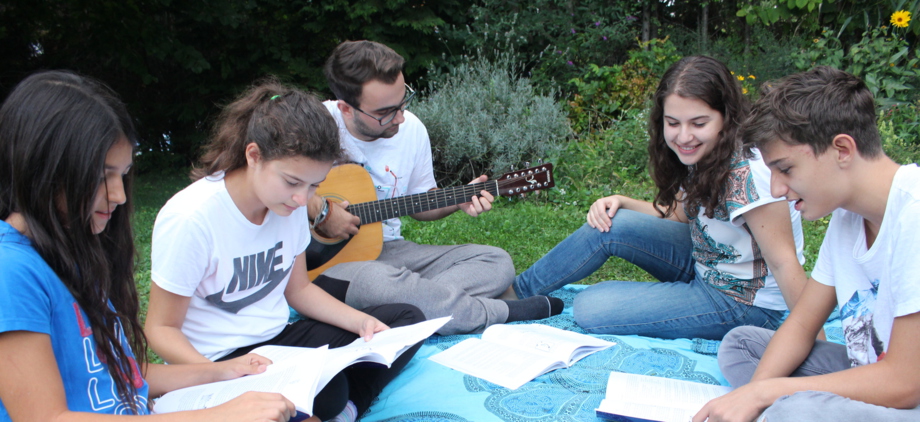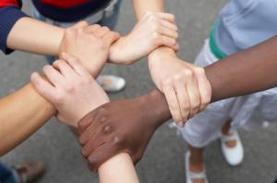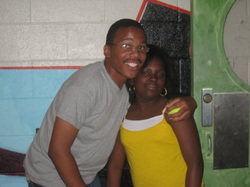
Junior Youth Spiritual Empowerment Program
The Junior Youth Spiritual Empowerment Program (JYSEP) is a part of an educational process that seeks to raise capacity within a population to take charge of its own spiritual, social and intellectual development. This program is open to all young people aged between 11 and 14, of every religious or non-religious background, and assists them to navigate through this crucial stage in their lives. The program explores themes from a Bahá’í perspective but not in the mode of religious instruction. Engaging junior youth in this program will serve to enhance their spiritual and intellectual capacities and to prepare them to participate effectively in the affairs of their communities.
|
Junior Youth
Junior youth refers to a special group, ranging in age from 11 to 14, with special needs as they are somewhat between childhood and youth when many changes are
occurring within them.
|
Spiritual
Spiritual refers to the universal moral concepts common to all faiths and traditions that exist in the world today, such as truthfulness, unity, justice, cooperation,
service to humanity, striving for excellence, and relying on God for guidance and assistance.
|
Empowerment
Empowerment means to assist young people to take ownership of their personal development and to build capacity for meaningful social action in their communities.
|
Why this age group?
The junior youth program instills in junior youth the sense of a twofold moral
purpose:
(1) to take charge of their own intellectual and spiritual growth
(2) to contribute to the transformation of society.
The transformation in the individual and in society are intimately linked. Developing one's potential and working for the welfare of society cannot be separated, for a person's moral standards
and behavior shape his or her environment and in turn are molded by the structure of society.
This program strives to achieve the following goals:
- Assist the junior youth to enhance their powers of expression.
- Reinforce a moral structure that will serve them throughout their lives and will help them in distinguishing wrong from right.
- Cultivate the concept of service in the junior youth and encourage them to engage in different acts of community service.
- Encourage the junior youth to explore and develop their talents and hidden abilities, in an effort to build their capacity for service to others.
Junior youth group
The program is implemented by forming groups of 10 to 15 junior youth in a neighborhood. In the group, bonds of friendship, love and a sense of a common goal are established. The junior youth
group serves as an environment of mutual support for its members, one in which they can develop the spiritual perception and patterns of thought and behavior that will characterize them as youth. The
group learns to listen, to reflect, to make decisions and to act on their decisions. With these skills, they are able to analyze together the constructive and destructive forces in society and learn
how to channel their energies toward improving the conditions of their community.
The group meets once a week for 2 to 3 hours every meeting. It is recommended to apply this program for 3 consecutive years.
Activities
- The curriculum: it constitutes a story with certain moral concepts, on which the junior youth consult. This helps them in developing the ability to express themselves and their thoughts. The materials have been developed, piloted and adopted in junior youth groups around the globe. Their relevance goes beyond cultural or religious boundaries, and they seek to help junior youth develop an intellectual and spiritual framework with which to approach their path in life.
- Service: the junior youth discuss and decide on service activities as a group. Acts of service that the junior youth perform for their neighborhood will depend on the needs of their local community. Examples of these service activities are the following: cleaning the local park, planting trees and flowers, helping out in an orphanage, visiting the elderly and the ill…etc.
- Extra-curricular activities: different forms of arts and crafts, sports and recreational and educational trips are an integral part of the junior youth group.
“The transformation…of society will certainly depend to a great extent on the effectiveness of the preparations the youth make for the world they will
inherit.”
~ The Bahá'í Writings
Animator
In each group, there is the need for an older person who is a true friend to the junior youth and can assist them in the development of their capacities. Those who perform such a function are known as animators of junior youth groups. As a friend, he or she helps to create an environment in which each group member feels comfortable expressing his or her thoughts, free from the fear of censure or ridicule. The animator is a trained, unpaid mentor who treats junior youth not as children but as equals.



